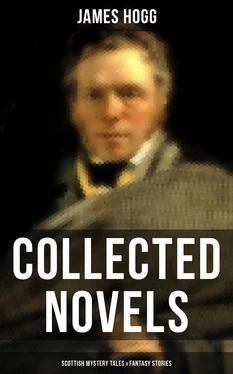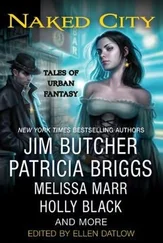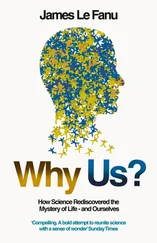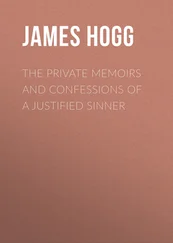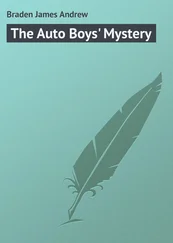James Hogg
James Hogg: Collected Novels, Scottish Mystery Tales & Fantasy Stories
The Three Perils of Man, The Brownie of Bodsbeck, The Shepherd's Calendar and Other Tales
Published by

Books
- Advanced Digital Solutions & High-Quality eBook Formatting -
musaicumbooks@okpublishing.info
2017 OK Publishing
ISBN 978-80-7583-604-5
Table of Contents
Novels Novels Table of Contents
The Private Memoirs and Confessions of a Justified Sinner The Private Memoirs and Confessions of a Justified Sinner Table of Contents The Editor’s Narrative Private Memoirs and Confessions of a Sinner End of the Memoir
The Three Perils of Man - War, Women and Witchcraft: A Border Romance
Short Stories
The Brownie of Bodsbeck
The Shepherd's Calendar
Rob Dodds
Mr Adamson of Laverhope
The Prodigal Son
The School of Misfortune
George Dobson's Expedition to Hell
The Souters of Selkirk
The Laird of Cassway
Tibby Hyslop's Dream
Mary Burnet
The Brownie of the Black Haggs
The Laird of Wineholm
Window Wat's Courtship
A Strange Secret
The Marvellous Doctor
The Witches of Traquair
Sheep
Prayers
Odd Characters
Nancy Chisholm
Snow-Storms
The Shepherd's Dog
The Expedition To Hell
The Mysterious Bride
The Wool-Gatherer
The Hunt Of Eildon
Novels
Table of Contents
The Private Memoirs
and
Confessions of a Justified Sinner
Table of Contents
The Editor’s Narrative
Private Memoirs and Confessions of a Sinner
End of the Memoir
The Editor’s Narrative
Table of Contents
It appears from tradition, as well as some parish registers still extant, that the lands of Dalcastle (or Dalchastel, as it is often spelled) were possessed by a family of the name of Colwan, about one hundred and fifty years ago, and for at least a century previous to that period. That family was supposed to have been a branch of the ancient family of Colquhoun, and it is certain that from it spring the Cowans that spread towards the Border. I find that, in the year 1687, George Colwan succeeded his uncle of the same name, in the lands of Dalchastel and Balgrennan; and, this being all I can gather of the family from history, to tradition I must appeal for the remainder of the motley adventures of that house. But, of the matter furnished by the latter of these powerful monitors, I have no reason to complain: It has been handed down to the world in unlimited abundance; and I am certain that, in recording the hideous events which follow, I am only relating to the greater part of the inhabitants of at least four counties of Scotland matters of which they were before perfectly well informed.
This George was a rich man, or supposed to be so, and was married, when considerably advanced in life, to the sole heiress and reputed daughter of a Baillie Orde, of Glasgow. This proved a conjunction anything but agreeable to the parties contracting. It is well known that the Reformation principles had long before that time taken a powerful hold of the hearts and affections of the people of Scotland, although the feeling was by no means general, or in equal degrees; and it so happened that this married couple felt completely at variance on the subject. Granting it to have been so, one would have thought that the laird, owing to his retiring situation, would have been the one that inclined to the stern doctrines of the reformers; and that the young and gay dame from the city would have adhered to the free principles cherished by the court party, and indulged in rather to extremity, in opposition to their severe and carping contemporaries.
The contrary, however, happened to be the case. The laird was what his country neighbours called “a droll, careless chap”, with a very limited proportion of the fear of God in his heart, and very nearly as little of the fear of man. The laird had not intentionally wronged or offended either of the parties, and perceived not the necessity of deprecating their vengeance. He had hitherto believed that he was living in most cordial terms with the greater part of the inhabitants of the earth, and with the powers above in particular: but woe be unto him if he was not soon convinced of the fallacy of such damning security! for his lady was the most severe and gloomy of all bigots to the principles of the Reformation. Hers were not the tenets of the great reformers, but theirs mightily overstrained and deformed. Theirs was an unguent hard to be swallowed; but hers was that unguent embittered and overheated until nature could not longer bear it. She had imbibed her ideas from the doctrines of one flaming predestinarian divine alone; and these were so rigid that they became a stumbling block to many of his brethren, and a mighty handle for the enemies of his party to turn the machine of the state against them.
The wedding festivities at Dalcastle partook of all the gaiety, not of that stern age, but of one previous to it. There was feasting, dancing, piping, and singing: the liquors were handed, around in great fulness, the ale in large wooden bickers, and the brandy in capacious horns of oxen. The laird gave full scope to his homely glee. He danced—he snapped his fingers to the music—clapped his hands and shouted at the turn of the tune. He saluted every girl in the hall whose appearance was anything tolerable, and requested of their sweethearts to take the same freedom with his bride, by way of retaliation. But there she sat at the head of the hall in still and blooming beauty, absolutely refusing to tread a single measure with any gentleman there. The only enjoyment in which she appeared to partake was in now and then stealing a word of sweet conversation with her favourite pastor about divine things; for he had accompanied her home after marrying her to her husband, to see her fairly settled in her new dwelling. He addressed her several times by her new name, Mrs. Colwan; but she turned away her head disgusted, and looked with pity and contempt towards the old inadvertent sinner, capering away in the height of his unregenerated mirth. The minister perceived the workings of her pious mind, and thenceforward addressed her by the courteous title of Lady Dalcastle, which sounded somewhat better, as not coupling her name with one of the wicked: and there is too great reason to believe that, for all the solemn vows she had come under, and these were of no ordinary binding, particularly on the laird’s part, she at that time despised, if not abhorred him, in her heart.
The good parson again blessed her, and went away. She took leave of him with tears in her eyes, entreating him often to visit her in that heathen land of the Amorite, the Hittite, and the Girgashite: to which he assented, on many solemn and qualifying conditions—and then the comely bride retired to her chamber to pray.
It was customary, in those days, for the bride’s-man and maiden, and a few select friends, to visit the new-married couple after they had retired to rest, and drink a cup to their healths, their happiness, and a numerous posterity. But the laird delighted not in this: he wished to have his jewel to himself; and, slipping away quietly from his jovial party, he retired to his chamber to his beloved, and bolted the door. He found her engaged with the writings of the Evangelists, and terribly demure. The laird went up to caress her; but she turned away her head, and spoke of the follies of aged men, and something of the broad way that leadeth to destruction. The laird did not thoroughly comprehend this allusion; but being considerably flustered by drinking, and disposed to take all in good part, he only remarked, as he took off his shoes and stockings, that, “whether the way was broad or narrow, it was time that they were in their bed.”
Читать дальше
